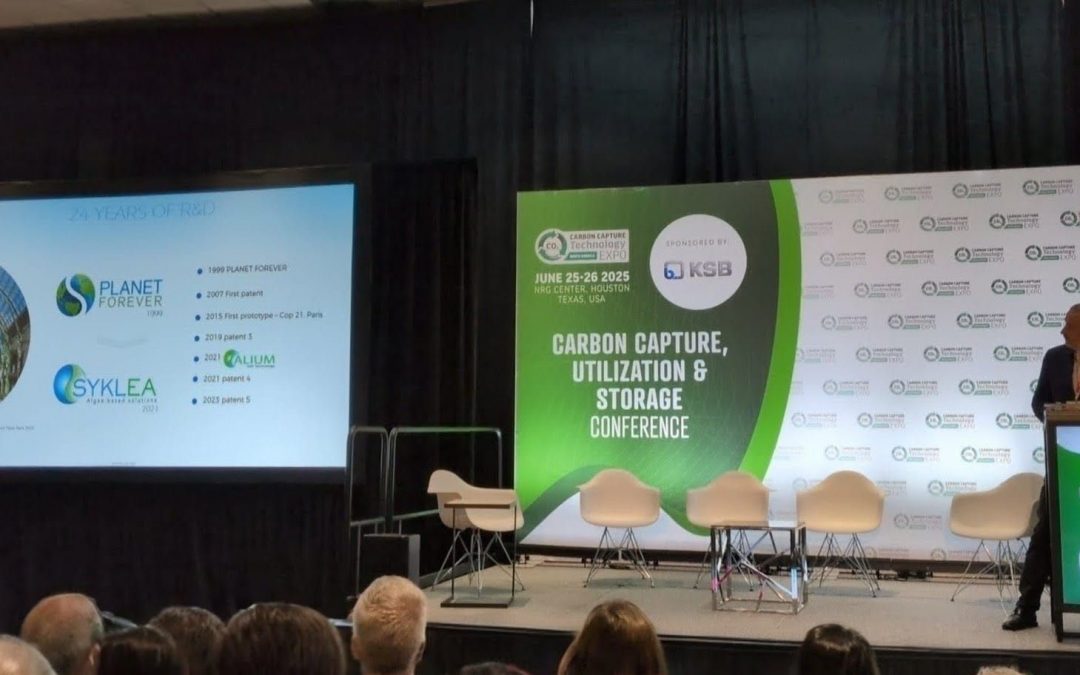A closer look at a sector still dominated by underground storage — and why Syklea champions a different path
At this year’s Carbon Capture Technology Expo, one detail stood out immediately: the overwhelming focus on CO₂ storage. Booth after booth showcased technologies dedicated to capturing, concentrating, liquefying, transporting, or injecting CO₂ deep underground.
The visual atmosphere itself — dominated by shades of blue — reflected the mindset of an industry still centered on burying carbon.
And then, in the middle of this landscape, a single stand in green: SYKLEA.
A small detail, yet symbolic of a deeper shift — the transition from carbon disposal to carbon valorization (CCU).
CO₂ is not a waste — it is a resource
CO₂ is one of the fundamental molecules of life, essential to biological cycles. Treating it as a waste to be hidden underground ignores its potential as a raw material for building a circular, bio-based industrial economy.
Microalgae have long been identified as powerful allies for CO₂ valorization, capable of converting carbon into biomass, oxygen, and even green hydrocarbons. Yet for decades, industrial deployment remained out of reach due to two bottlenecks:
• high production costs
• high extraction costs
SYKLEA’s work is the result of over 20 years of research, initially carried out within Planet Forever, a pioneering structure dedicated to microalgae and CO₂ valorization.
In 2021, a decisive breakthrough emerged with our patented No Water Technology™, eliminating water from biomass production systems and drastically reducing costs — unlocking industrial feasibility at last.
This milestone led Planet Forever to become SYKLEA SA, accelerating the deployment of next-generation microalgae technologies for carbon capture and valorization.
Storage alone is not a long-term solution
Geological storage may play a temporary role — but it cannot be the backbone of long-term decarbonization.
The real transformation lies in integrating CO₂ into productive value chains capable of generating fuels, materials, chemical intermediates, and bio-based products.
To tackle climate change, we must move from a paradigm of disposal to a paradigm of regeneration.
Building a new carbon economy — together
Scientists, industrial players, policymakers, and citizens all have a role to play in changing how we view CO₂.
We now have the knowledge, the tools, and the technology to transform CO₂ into wealth.
Together, we can build a new industrial era — one where carbon is not hidden underground, but used to create sustainable value.

